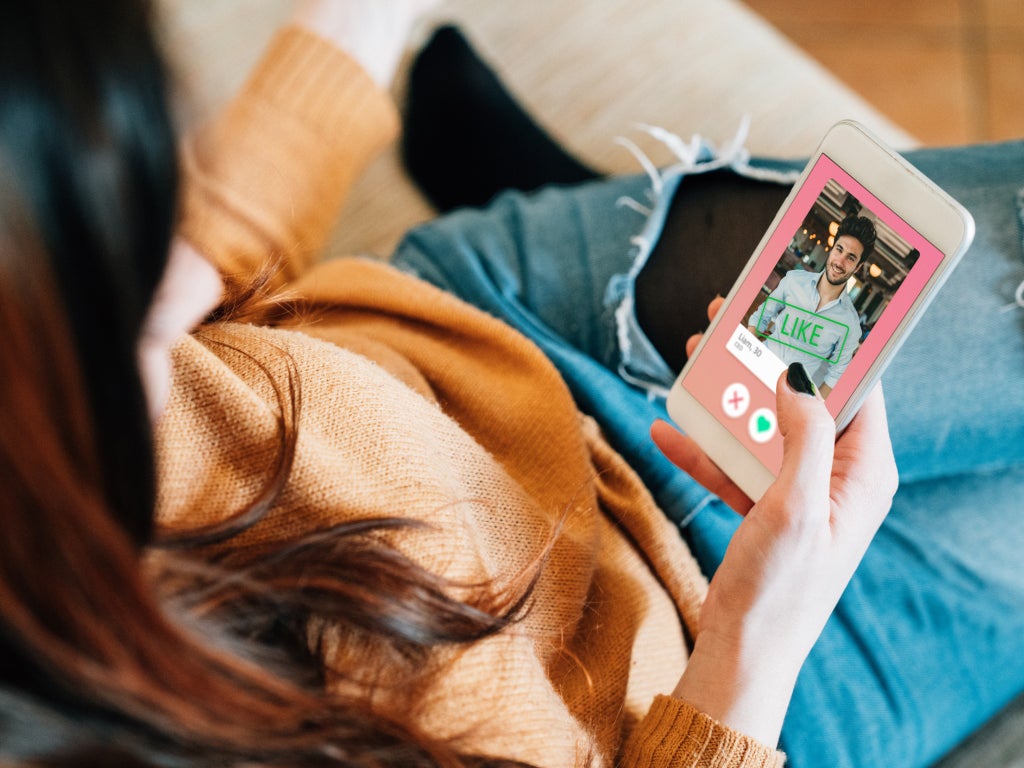
Tinder could be charging its young gay and lesbian users and people over 30 higher fees for its premium service, a new report from Which? has found.
The report from the consumer watchdog suggested possible discrimination and a breach of UK law on the dating app.
For the report, Which? asked nearly 200 mystery shoppers to create real profiles on the app and make a note of prices quoted for Tinder Plus, the dating app’s premium package that offers users perks like unlimited “Likes” and “Rewinds”.
It found that some LGBT+ users were paying more, with some gay and lesbian users paying 10 per cent (£6.74) more than bisexual users for the service and eight per cent more (£5.28) than what heterosexual users paid.
The study also found that gay and lesbian people aged between 18 to 29 paid £60.15 on average for the 12-month subscription, which was 37 per cent more than heterosexual users under 30 who paid £44.06 on average. Bisexual users under 30 paid an average of £46.09 per year.
Those older than 30 also appeared to be charged more, with those in the 30 to 49-year-old age bracket paying up to 48 per cent (£24) more and the over-50s paying 46 per cent (£23.19) more.
The report found that the price for a 12-month subscription of Tinder Plus for all age ranges and sexualities could range anywhere between £26.09 and £116.99.
A spokesperson for Tinder said these claims were “categorically untrue” and told The Independent: “The mystery shopping activity of less than 200 people by Which? is deeply flawed and the conclusions cannot be relied upon due to several factors.
“Tinder members are able to choose up to three different sexual orientations, and they can change those at any time and as many times as they like. We encourage anyone who wants to test this out for themselves to create a Tinder account, sign up for Tinder Plus and change their sexual orientation. They will see the price does not change.”
Which? said it had reported its findings to the Equality and Human Rights Commission (EHRC) and the Information Commissioner’s Office (ICO) and called on them to investigate whether there had been a breach of UK law.
The Equality Act 2010 makes it unlawful to charge people of one sexual orientation more than others unless there is a clear justification for this.
Tinder told Which? that it was “categorically untrue that our pricing structure discriminates in any way by sexual preference”.
The dating app added that older people did have to pay more in some countries but that the price difference was a “discount for younger users”.
The consumer group noted that it was occasionally justifiable under UK law to offer age-based price variations for the same product or service, such as discounts to over-65s or students, where it can be shown there is a legitimate basis for this. However, Which? noted that, for Tinder, the discount for younger people was unclear on the app.
“Our research uncovered concerning evidence that people using Tinder could unknowingly be facing higher charges because of their sexual orientation and age,” Which? director of policy and advocacy, Rocio Concha, said in a statement.
“This suggests possible unlawful price discrimination, whether or not it is intentional on Tinder’s part, and potentially unlawful processing of personal data. We are calling for the EHRC and the ICO to investigate this issue further. If regulators decide that Tinder’s personalised pricing is breaking the law, then the dating app giant must face strong action.”
A Tinder spokeswoman told Which?: “Tinder is free to use and the vast majority of our members enjoy our app without upgrading to the paid experience. However, we do offer a variety of subscription options to help our members stand out and match with new people more efficiently.
“Tinder operates a global business and, in some geographies, we offer discounted subscriptions to younger members. In addition, we frequently offer promotional rates which can vary based on factors like location or length of subscription. No other demographic information is considered in our pricing structure."
The spokeswoman added: “It is categorically untrue that our pricing structure discriminates in any way by sexual preference. Any reporting or inference is patently false and outrageous.”
An EHRC spokeswoman said: “As Britain’s equality regulator it is our job to protect, uphold and enforce equality laws. We take reports of discrimination very seriously. This report of potential discrimination by Tinder is concerning. We will consider these findings by Which? and respond in due course.”
Additional reporting by PA.







